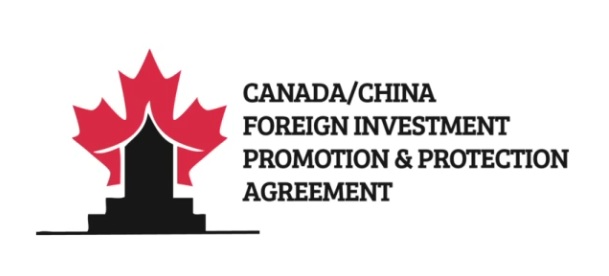A senior international law adviser with the International Institute for Sustainable Development is warning Canadians that a new investment treaty with China will make environmental measures more vulnerable to costly investor-state disputes than they are under existing treaties. He argues that a “sleight of hand” by the Harper government will have repercussions here at home, but importantly for African countries like Benin whose governments are currently negotiating investment treaties with Canada.
“Since 2005, Canada has prided itself on selling an advanced model of investment treaty to developing countries — one that, it has argued, protects their regulatory space while still protecting investors,” writes Howard Mann of IISD in Embassy Magazine this week (subscription only). The Canada-China Foreign Investment Protection and Promotion Agreement (FIPA) ends this model, he says, “and Canada’s negotiating partners should beware, as should Canadians.”
Not all bilateral investment treaties or FIPAs are built the same. Some offer better protections to foreign investors than others, for example through much more broadly worded definitions of “fair and equitable treatment” and what government actions would be considered to violate that treatment. Most but not all investment treaties let companies invoke those rights directly by taking disputes with government measures before paid arbitrators outside the country, not national courts. (Corporate Europe Observatory and Transnational Institute describe how the private nature of this dispute settlement system makes it prone to corporate bias in their new report, Profiting from Injustice.)
Mann writes that in 1994, Canada, the U.S. and Mexico decided on a very broadly worded investment chapter in NAFTA, including an investor-state dispute settlement process that has since been used about 33 times to challenge and seek compensation for government measures in all three countries. Canada has lost several important cases related to environmental or resource measures, most recently in a dispute brought by Exxon Mobil and Murphy Oil against a requirement to fund research and development projects in Newfoundland and Labrador as part of their offshore oil and gas projects.
Since the Exxon-Murphy case was concluded last year, Canada has been hit with three more NAFTA investment disputes against a ban on natural gas fracking in Quebec’s St. Lawrence Valley, a moratorium on offshore wind development in Ontario, and the invalidation of a patent for a drug by Eli Lilly. These cases, which the U.S. government watchdog group Public Citizen summarizes in a recent Eyes on Trade blog post, pose significant threats to our sovereign right to make public policy decisions.
In 2004, in response to this unfortunate (to put it mildly) NAFTA record, Canada revised the language it uses in its investment treaties to try to restrict the opportunities for foreign investors to challenge non-discriminatory measures (like environmental policy) before investor-state tribunals. Mann explains:
To protect these changes in investor protections, post-2004 treaties also include a technical legal device called a forward-looking most-favoured nation provision. This means that an investor can use higher levels of investor rights provided under another treaty, but only if that other treaty was concluded after their nation’s initial treaty with Canada. An investor arbitrating a claim under treaty A can use stronger rights given to another investor under treaty B, but only if that treaty was concluded later.
The China FIPA reverses this, says Mann, because though Article 8.1 qualifies the most-favoured nation provision such that it does not apply to treaties signed before 1994, it will apply to those signed after that, before Canada came out with its new model FIPA with revised language. This means that a Chinese firm could insist it is owed treatment as good as Canadian firms secured in NAFTA-like investment treaties with Barbados, Egypt, Costa Rica, Ecuador and a few other countries.
“This should concern Canadians concerned with issues such as the environmental conditions on oil sands development,” writes Mann, cautioning that the European Union will surely demand these “higher standards of investment protection” in a proposed Comprehensive Economic and Trade Agreement with Canada. (In fact, recent leaks from the CETA negotiations show Germany pressing for a much more pro-investor agreement than even NAFTA.)
“Why the Canadian government has done this is unknown,” says Mann. “To secure higher rights for Canadian investors abroad by using this new MFN clause? To create a precedent for negotiations with African countries? To put a brake on future environmental regulation in Canada, especially in relation to the northern pipeline and China’s newly-acquired tar sands interests? No one knows.”
But he concludes that the effect on developing countries such as Benin, Pakistan and Mali that are negotiating FIPAs with Canada will be “to limit their ability to adopt badly-needed new regulatory measures to protect the environment, worker safety, human health, etc.”
The Harper government has not yet ratified the FIPA with China, apparently because it is waiting for China to do so first. But it might not get that far any time soon with a potential legal challenge on the way.
As Global News reported last week, “The Hupacasath First Nation [in B.C.] is preparing to file an injunction against the federal government, arguing Ottawa breached its constitutional obligations to consult First Nations when negotiating the [investment treaty with China].”
For more on that First Nations legal challenge, the groups supporting it (including the Council of Canadians), and how you can contribute, click here.



